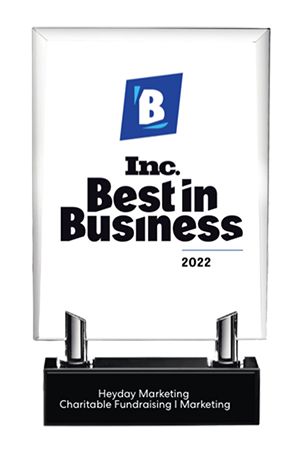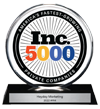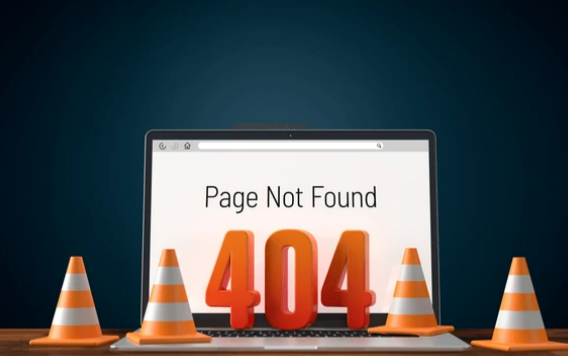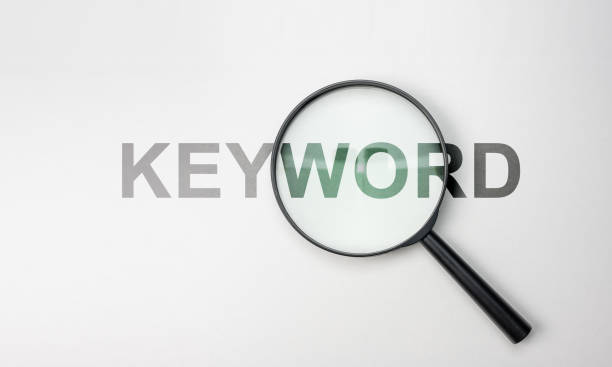While most of us have a sense of what paid advertising means, many of us do not fully understand the intricacies of paid advertising and things like PPC, or pay-per-click. Even with a basic understanding of paid advertising, many business owners still may ask, what is PPC?
The goal of all paid advertising is to drive online traffic to your website or brick-and-mortar store. With things like targeted ads, the hope is that people searching for something on the order of what you provide will end up on your landing page or in your store and ultimately make a purchase. So, what is PPC and how can it help achieve these goals?
Still, even as 45 percent of small businesses use some form of paid advertising, PPC remains somewhat mysterious to some business owners. PPC is of special concern for small businesses because they need to get the most out of their advertising money.
What is PPC? What are the benefits of PPC? How does PPC advertising work? And how can your business get the most out of PPC advertising? This guide will give you the basic information on PPC advertising and how it can work for your business.
What is PPC?
PPC stands for pay-per-click. It is a form of advertising that allows you to pay a simple fee to place your ads on search engine results (SERPs). When someone searches a specific keyword, the results page will display your ad directly to the online users. You only pay is when a user clicks on your ad on the search engine results page.
When this type of advertising is done correctly it can generate high quality leads—the kinds of leads that lead to conversions. Part of the appeal of PPC for small businesses is that it can offer a massive return on investment (ROI).
PPC ads are quite versatile. They can come in different sizes and shapes. PPC ads can consist of text, images, videos, or any combination of these things. What is more, though PPC ads are most common on SEPRS, they can also appear on social media platforms and other types of online channels.
PPC Benefits
The reason many marketers favor PPC ads is because they offer real benefits. Some of the benefits of PPC ads include:
Cost Effectiveness
PPC ad campaigns allow you complete control over how much you spend. You only pay for the ads that users click on, and these ads are links to your landing page. There is a high probability of conversions once users have found their way to your landing page.
Fast Results
Obviously, organic rankings in SERPs are ideal, but it can take a long time to reach the first page of a SERP. It sometimes takes months to gain this level of exposure. Small businesses and startups do not have time to wait for this kind of traffic. PPC ads can elevate your rankings in SERPS quickly, landing you at the top in a short time. Some businesses have reported reaching this status within a few hours of launching a PPC ad campaign.
Control and Testing
You have complete control of the keywords you are targeting. You also have control over things like ad placement and the budget for your PPC ads. It is also easy to run A/B testing on PPC ads to determine which gets the best results. This vastly increases your return on investment, and you can scale your PPC ads for as long as they are producing results.
Targeting Ideal Customers
With PPC ads, you can skip more general ads that reach a wide audience, many of whom are not interested in your brand, and target your PPC ads for an audience that has already expressed interest in the kinds of things you offer. PPC ads allow for targeting methods that directly pinpoint your preferred demographic. PPC ads are also ideal for retargeting campaigns that are specifically tailored to users who have shown interest in your brand.
Not Affected by Algorithm Changes
The algorithm for Google and the 200 ranking factors changes frequently. These changes immediately impact rankings in online searches, and these changes make search engine results slightly unstable. PPC ads are largely immune to these algorithm changes because, as paid content, they are not subject to the ranking factors.
How Does Pay-Per-Click Advertising Work?
There are a number of pieces and steps for PPC ads, and each of these has key terms you need to know. Some of the most important features for how PPC ads work include:
Keywords
Each of your ads within a set of ads will be designed to target the keywords most relevant to these ads. These keywords let the search engine know which queries should trigger which ad. It is important that your PPC ads appear along with search engine queries that can be associated with the content of your ads.
Ads
These are the specific content that make up the PPC ads. Ads generally belong in an ad group. Not all ads are going to work in every context so you need a group of ad tethered to specific keywords that will trigger the search engine to display a PPC ad.
Ad Rank
Ad rank determines the position of an ad on a SERPS. This value is determined by the maximum bid x the quality score. The maximum bid is the most you are willing to pay for a pay-per-click. The quality score is what search engines give based on the click through rate (CTR) of ads measured against the relevance of keywords in an ad. It also measures the quality of your landing page and past performance on SERPs.
Targeting
Targeting is an issue unto itself. You can target your ads according to specific demographics, toward people who have previously visited your website or clicked on your ads (retargeting, or other criteria based largely on the data analytics for your online channels which will include your landing page, other marketing campaigns, and social media.
Budgets & Bids
Obviously, your budget is determined by your own business goals. How much you are willing to spend on PPC ads is based on the kind of return on investment you can reasonably expect. Bids will determine things like ad rank. These factors are interrelated and require regular re-assessment based on conversions and overall PPC ad performance.
Conversions
This is the base figure for things like click-through-rate and hits on your landing page. Conversions are the first objective for any advertising and marketing campaign.
PPC vs. SEO
SEO, or search engine optimization, is the process of optimizing your website to rank high in an online search. High rankings in a search engine display mean high gain on your website. This leads to conversions and sales. SEO is designed to work with organic search results. To gain high search engine rankings, SEO determines keywords that will attract the attention of the search engine for certain types of online searches.
PPC, on the other hand, is paid content and is therefore not entirely subject to the same rules as SEO. That said, you still need to perform SEO procedures on your PPC ads. Although SEO and PPC are different, professional marketers understand that you get the best results when you align your SEO practices with your PPC ads.
PPC Models
PPC campaigns offer two types of keywords bidding options. The two types of PPC models are:
Flat-rate model
Flat rate PPC bidding makes it possible for advertisers, which is your business, to work with search engines toward an agreed upon single amount for each ad click. Search engines generally have established rate systems for keywords. This system is based on the competition for any given term. This means keywords that are highly sought after are more expensive than those that receive fewer searches.
For example, a keyword that is specific to your brand or business (the name of a product you sell, for instance) will have a cost associated with this term that is based on how many other businesses use this term to drive traffic to their landing pages. Keywords search cost is also based on the quality of your website. If you have a high quality website that is professionally designed and optimized, you will likely carry a higher value for search engines that websites that are minimal or just poorly designed.
Your online reputation for your product can also have an influence on the rates for a flat-rate model PPC ad. If you have garnered a reputation for an overpriced and low-quality product, this will drive up your cost for a flat-rate PPC ad.
Most search engines and publishers will allow for negotiation on rates for flat-rate PPC, especially if you are willing to sign a long-term contract.
Flat-rate bidding is common for comparison shopping search engines. Things like Nextag, PriceGrabber, eBay, and Shopzilla have rate cards with published rates for their flat-rate PPC ads. These websites tend to sort PPC ads according to categories and searches, and this increases your likelihood of driving conversions.
Bid-based model
Those ads that pop up on Google and Bing searches at the top or just to the right are most often bid-based PPC ads.
Things such as Google Adwords and Microsoft AdCenter, which are search engines in their own right, have advertising networks that compete with each other to gain the top position in organic searches. Bid-based PPC campaigns differ from flat-rate PPC ad campaigns in that they vary in cost depending on the demand for the advertising space at any given time and on any given channel. Adwords and Advcenter determine the cost of an ad click based on how a keyword is running, and they do this by running a real-time auction.
The way this works is that advertisers set a maximum price for what they are willing to pay for a PPC ad on a specific search engine or channel. Keywords are generated every time someone searches a specific term. To determine the cost of a click, search engines or publishers will run a real-time auction to find the advertiser with the highest bid. The higher the bid, the higher the ad will appear on a search engine results page. There are other factors that determine the winner of the bid. These auctions also account for the relevance of keywords.
Other factors that determine ad rank include
- The click-through rate, or the likelihood that a customer will click through your ad as a result of their search.
- Ad relevance, or whether or not the relevant keyword actually appears in your ad text.
- Landing page quality. These processes will determine whether or not your landing page contains unique content that is relevant to the keyword that triggered the ad.
PPC FAQS
What is PPC?
PPC stands for pay-per-click. It is a form of advertising that allows you to pay a simple fee to place your ads on search engine results (SERPs). When someone searches a specific keyword, the results page will display your ad directly to the online users. You only pay when a user clicks on your ad on the search engine results page.
What are the benefits of PPC ads?
PPC ads are cost effective, they produce fast results, they are great for targeting customers, and they largely operate independently of algorithm changes.
What are the two types of PPC ad models?
PPC ads can be purchased for a flat rate or they can be purchased based on bids. The latter category is dependent on many factors.
Need an expert team to run your PPC Campaigns? HeyDay can help
To get the most out of PPC ads, you should trust marketing professionals who know the complexities of this type of marketing strategy. HeyDay Marketing Services can determine which mode of PPC advertising will work best with your business and your budget. To obtain the highest return on investment with PPC ad campaigns, allow the marketing experts at HeyDay Marketing Services to plot a course toward the best results in PPC ads.
Our marketing professionals know exactly how to optimize things like SEO and PPC to align these processes for the highest results. Our marketing teams can create a plan that will achieve business success for our brand with PPC ads as just one feature of a marketing plan designed for you.
We are a full-service marketing agency based in Miami, and it is our business to get your business the best return on investment from a professional marketing agency. This means we know how to place your business at the top of local searches in Florida and link these searches through retargeting strategies. When potential customers search for local businesses, HeyDay Marketing Services knows how to position your business so that yours is among the businesses with the highest rankings.
Wrapping things up
The business of online advertising provides multiple opportunities to gain attention online. However, these opportunities are so complex that it can be difficult to gain attention amid the millions of others competing for online recognition. PPC ads are a highly effective way of gaining online recognition and driving traffic to your website.
While it is preferable to gain traffic and hits on your website from organic search engine results, it simply is not practical to rely on this type of exposure. To drive the online traffic you need to stand out and to achieve success, you need other ways of placing your advertising high in online searches. PPC advertising is one of the attaining this level of exposure in online search results.
PPC ads are extremely cost effective, which is one reason they are popular with small businesses and startups, and they are not completely dependent on search engine algorithms that often change the way keywords are ranked.
To get the most out of your advertising budget, PPC ads offer an effective way to boost your brand recognition online. To achieve the best results with PPC ads, leave the process to the marketing professionals at HeyDay Marketing Services.






